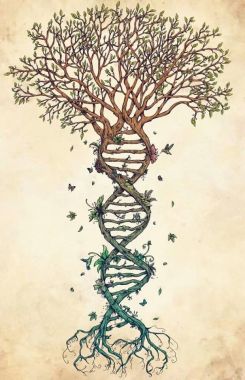[Meeting #13] 11/5/2016
“History made us. We will not eat ourselves up anymore. We are whole.” Rosario Morales and Aurora Levins Morales- Ending Poem
We began our meeting last week revisiting a poem we read during our first meetings this past summer that was written by mother and daughter Rosario and Aurora Morales. This poem unpacks how their diasporic identity is rooted in colonization and indigeneity. While expressing the difficulty to connect with the fragments of our fractured ancestry. History made us glue together the pieces of narratives that were suppressed, ignored and overwritten by colonization and supremacy. We hunger for truth, connection and understanding of these untold tales that were fed to us by institutional structures. Together we nourish and fill ourselves with the experience to grapple with knowledge and replenish the erasure of our history until we are whole.
Today we hosted three guest in anticipation to blend our lenses and understanding of Latinx identity throughout this project. A geneticist, Cultural Anthropologist/Historian, and a Social Work informed Genealogist provided workshops to help us unpack the “makeup of our brownness”. It is important to have three different professional disciplines to challenge and demonstrate how our constructed knowledge is shaped by our lived experiences and the framework in which we like to explore our Latinx identity.
We began with a Mexican native geneticist named Dr. Noe De La Sancha. He discussed biodiversity and contextualized the origins of the earth, homo sapiens, and how our notions of race is socially constructed. It was very meaningful personally to be taught by a Latinx scientist because my educational experience as child had limited exposure to predominantly male, white instructor for math and science courses. As a young girl I always dreamed of becoming a scientist because it was the subject I thrived the most in up into college.
At one point while reviewing natural selection, I blurted “survival of the fittest” because it was the mnemonic phrase I connected with while learning about Darwinism in high school. Dr. De La Sancha laughed and reassured that natural selection doesn’t imply this notion of “survival of the fittest because, “evolution isn’t necessarily the survival of the fittest but survival of those who adapt to current conditions.” The phrase actually derives from Herbert Spencer who coined the phrase, after reading Charles Darwin’s On the Origin of Species. Spencer drew parallels between his own economic theories and Darwin’s biological ones. Spencer states, “This survival of the fittest, which I have here sought to express in mechanical terms, is that which Mr. Darwin has called ‘natural selection’, or the preservation of favoured races in the struggle for life.”
This ideology within the late 19th and early 20th centuries and was used to justify political conservatism, imperialism, and racism and to discourage intervention and reform. This helped informed eugenics movements and promoted by the Nazi party in their quest to sustain a superior race and eliminate those who do not share the traits and identities of white supremacy. Social Darwinism in reality is all of life is constantly trying to catch up to fluctuations in our environment. We are resilient beings striving to adapt through socially constructed barriers and ideologies that are reinforced in our modern day textbooks and consumed by our youth. We must resist, re-write and challenge these notions for our survival.
Cultural Anthropologist/Historian Dr. Jesse Mumm, presented on Biocultural Us, which discussed the migration, origins and genes of homo sapiens. The lecture began by discussing our migration patterns from Africa and how climate change shaped our paths for adaptation and survival. Within the 1800’s “five races” were created and supported by U.S and European scientist who determined distinct biological races by skull size and phenotypic traits such as skin, nose size and hair type/color. The social construction of race is inherently problematic beyond the inaccuracy of the scientific findings but used to inform racist ideologies and practices.
Biology and culture intersect through our generational experiences and have deeply shaped the outcomes of those who are polarized as dominant “white” or other. Although we understand among humans there are no biological differences between races, the legacy of racism is widespread and detrimental. For instance, Dr. Mumm explained how up until the 1870’s African Americans were first documented by their names rather than as property items. In 2016, racism still shapes legislation, resources and the polarization between the dominate culture vs marginalized identities is felt so deeply during our Presidential election. By learning how society and culture is highly informed by the intersection of race, law and power we can begin unlearn to decolonize these institutionalized structures and resources.
Kerry Cochrane is our resident Genealogist who uses Social Work to inform her practice. During our time with Kerry we were able to unpack many of the questions we had since the end of the summer when our students received their DNA results that were collected a few months ago. Our start was slow because many students either did their own research upon receiving their results and others did not know what questions to ask because the DNA results report is very overwhelming and heavy with information. The questions that were asked wanted more information of what are haplogroups or what it mean to be “broadly East Asian or European”? Overall, it was fascinating to learn more in depth about our genetic breakdown and to process the magnitude legacies.

















































